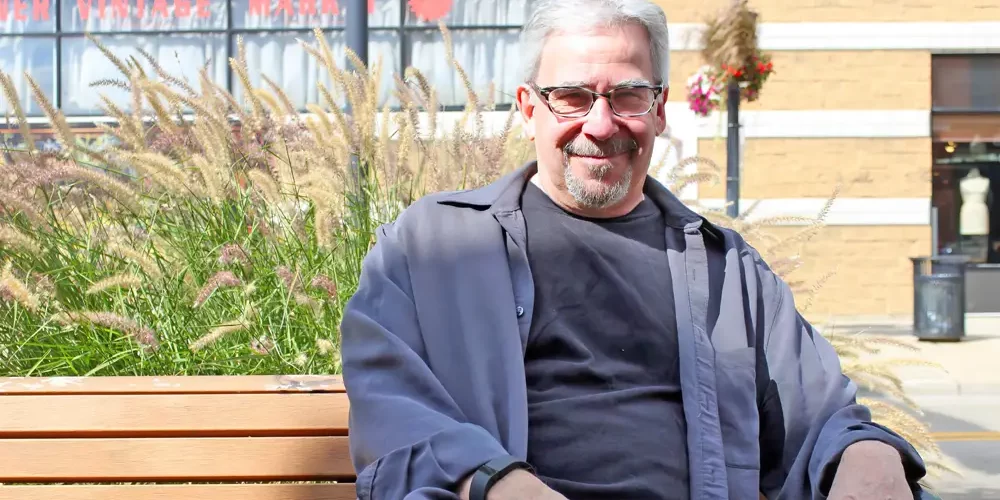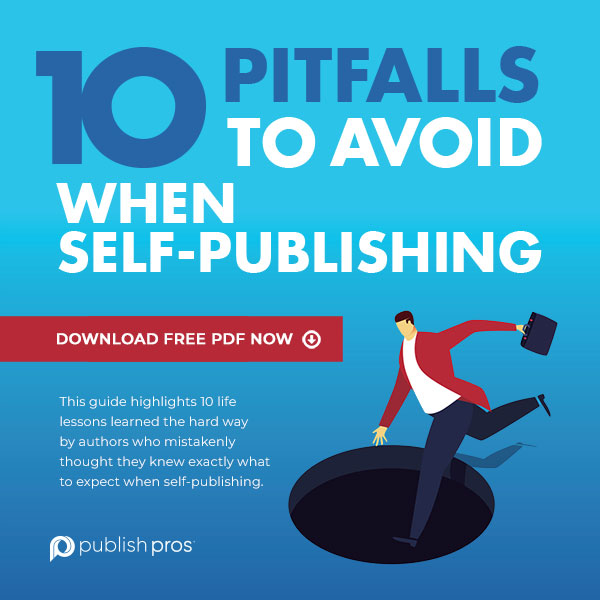
Author Spotlight: Don Levin
An award-winning fiction writer and poet, Donald Levin is the author of seven Martin Preuss mysteries: In the House of Night (2020), Cold Dark Lies (2019), An Uncertain Accomplice (2018), The Forgotten Child (2017), Guilt in Hiding (2016), The Baker’s Men (2014), and Crimes of Love (2011). His newest book, Savage City (2021), is a historical novel.
He is also the author of The Exile (2019), a dystopian novella; The House of Grins (1992), a novel; two books of poetry, In Praise of Old Photographs (2005) and New Year’s Tangerine (2007); and contributed a novella to Postcards from the Future: A Triptych on Humanity’s End (2019). His poetry and short fiction have appeared in numerous print and e-journals.
He is a native of Boston, Massachusetts, and current resident of Ferndale, Michigan, the setting for the Martin Preuss series. At various times he has worked as a warehouseman, theatre manager, advertising copywriter, editor, scriptwriter, video producer, and political speechwriter. He is retired dean of the faculty and Professor of English at the former Marygrove College in Detroit, and now writes full time.
PP: Tell us about your most recent book or an upcoming project.
My most recent project is Savage City, published late last year. The book blends history and fiction to take a deep dive into a violent week of labor strife in 1932 Detroit. It focuses on the lives of four main characters during a pivotal event: the Ford Hunger March.
Detective Clarence Brown is one of a handful of Black officers in the Detroit Police Department, navigating a thicket of lies and racism to find the killer of a young Black man. Ben Rubin wants to move from petty crime into the ranks of Detroit’s notorious Purple Gang. Elizabeth Waters is a fiercely independent Communist sympathizer who has turned her back on her privileged Grosse Pointe upbringing to join the workers’ fight for a piece of the American dream. Roscoe Grissom is an unemployed auto worker enlisted by the fearsome Black Legion to sow terror as a night-riding emissary of hate.
Against the backdrop of the bloody Ford Hunger March, events hurl these four into the center of a political storm that will change them forever.
Before Savage City, my last project was In the House of Night, the seventh novel in the long-running Martin Preuss series. With phenomenal covers by Publish Pros, this series follows the adventures of first police detective and later private detective Martin Preuss as his cases take him across the contemporary metropolitan Detroit area. Each novel is a stand-alone crime story with its own mysteries. A feature of the novels is Preuss’s touching relationship with his multiply-handicapped son, Toby.
In the House of Night finds Preuss investigating the gruesome murder of a history professor. The twisting trail leads him from a Buddhist temple to the gathering storm of white supremacist terrorism. It’s is a timely, gripping novel of guilt and redemption.
PP: How did you know you wanted to be an author?
It is a truth universally acknowledged that for most people who want to write, the urge begins early in life.
So it was with me. I can’t remember a time when I was young that I didn’t want to be a writer, even when I didn’t know exactly what that meant. I just knew I loved reading, and the natural partner to that was making up my own stories. I’m not sure where that came from. My parents weren’t readers; the only books we had in our house when I was growing up were the ones in my room. But I was a voracious reader in our library at Bagley Elementary School in Detroit (my favorite books were the Tom Corbett, Space Cadet series—yes, I am that old), and lying in bed at night I used to pretend my hands were the characters and I would act out stories with them (most of which ended in finger/thumb fistfights accompanied by much tongue-clucking sound effects).
One day my father brought home an old monster manual typewriter from his office. As soon as I started playing with it, I realized from the letters that appeared through its raucous clacking that I had found my instrument, the same way a pianist is moved by the note made by the first touch of cool ivory on a keyboard. At one point, somebody gave me a toy printing press—surely an act of almost psychic precognition—and I started printing up my little stories.
My reading habits were helped along by my painful, almost pathological shyness while growing up. It seriously curtailed my social development, but gave me all the time I wanted to read everything I could get my hands on. While other kids were out playing sports or going on dates, I was the quintessential bookworm, holed up at home discovering new authors and plowing through as much of their work as I could find.
As I grew older and life took shape for me with more clarity, I followed the well-trodden path of young writers everywhere. (I hate the term “aspiring writer” . . . to paraphrase a certain short green Jedi master: write or do not write, there is no aspire.) I wrote my stories and sent them out, got my rejections, revised the stories, and sent them out again. Occasionally I wrote a poem that was also rejected, but for me, fiction was where the heavy lifting of literature took place, so that’s what I concentrated on, with the aim of working my way up to writing novels.
And that, of course, is where I ultimately wound up.
PP: What is your writing process?
When people ask me how I can be so productive, there’s only one answer: good work habits. There was a long stretch of time during which I earned my living by writing; one of the best jobs I had, and the one that really turned me into a professional, was as speechwriter to the commissioner of the Health Department in New York City during the 1980s. There were times when I had to write as many as eight 20-minute speeches a week, along with op-ed pieces for the newspapers and medical journals. The most important lesson I learned writing under deadline was that inspiration comes through writing, not before. To wait for inspiration to strike before writing is a recipe for disaster (and also for getting fired very quickly).
As a result, when I’m working on a project, I’m writing every day. Pre-pandemic, I went to my local library to write, away from home distractions. Once the pandemic struck, I learned to focus on my writing alone. I would work all day, every day, with a minimum quota of 1,000 words per day. Most days my word count was higher, but occasionally it was a struggle to reach even 1,000.
When I wrote the Preuss books, I found that outlining didn’t work for me. Typically I start out by brainstorming characters and crimes. I had to have a general sense of the arc of the story in my mind, then I would plot out the book through the scenes I wrote each day. I always took Hemingway’s advice and stopped at a point when I knew what would happen next, but I always kept myself flexible enough to go where the story and the characters wanted to take me. I thought if I wanted to surprise the reader, I would first have to surprise myself.
When I wrote Savage City, I found I had to change my approach. I knew the book was going to be long and complex, with four separate but intertwined plot threads. I also knew there was going to be a tremendous amount of research involved, since I was writing about Detroit during the Great Depression and I wanted to be as historically accurate as possible.
So I started by brainstorming characters and situations, as always, but then had to formalize the plot threads in an outline of chapters. Again, I tried to remain flexible to follow where the surprises took me, so I changed the outline as necessary. But I needed a roadmap to keep me focused, so I relied on an outline more than I had before.
Because so much research was involved, I started out reading through my sources (including tapping local historians), but once I began writing, I incorporated my research and writing simultaneously. I lowered my daily quota to 500 words per day to accommodate all the research I was doing while writing (stopping the flow of writing, for example, to find out what Zippo lighters looked like in the 1930s). Once I got into the book, I was able to up my quota back to 1,000.
I wrote on the computer, trying not to edit too much as I went. Once a draft was finished, I printed it out and rewrote and edited in pen. When I came to the end, I entered all the changes into the computer and printed it out again. Lather, rinse repeat . . . I kept at it until I was satisfied it was finished.
Some people talk about how hard writing is, but honestly I love it. I love even the neuromuscular act of putting pen to paper or tapping words onto a screen.
PP: What do you do to get over writer’s block?
I don’t have writer’s block as a rule. Work habits and discipline take care of that.
I had severe writer’s block only one time in my life. It lasted 10 years. Early in my career, I would dutifully send out stories (and then novel queries) and get them back. Once in a blue moon, I placed a story with some small journal or other, and that was enough to keep me going for a while. But for the most part, I sent work out, I got work back. This was pre-internet, so there were no online publication opportunities. In fact, there was no online anything, no internet, no word processing, just a typewriter and the US mail.
I kept at it despite the rejections, which is what people tell you to do. Sooner or later, I believed, if something was good enough, it would find a home.
Finally, one day, when I was in my thirties, I thought all my hard work had paid off. I had written a mystery novel, and after making the rounds of agents, I found one who accepted me. He was the real deal. I thought I was in.
I went to meet him in New York City, taking the bus down from Binghamton, where I was living at the time. He told me he was “cautiously optimistic.” I remember the words to this day, as well as his soothing voice. He believed in the book. He believed in me. My spirits soared. Success was in sight.
Except now he was the one sending the manuscript out and getting it back. Periodically he would send me the pile of rejection notes he got from publishers, and they were not helpful. Finally, after three years of this, he returned the manuscript to me. “Sorry,” he said. “I like the book, but I just can’t do anything more with it.”
I sent him another manuscript that I had written in the meantime. He sent that one back, too. “Sorry, no.”
I was crushed.
After trying to break into publication for all of my twenties and most of my thirties, experiencing virtual nonstop rejection, I was back where I started. Cynthia Ozick writes about the little holy light like a pilot light that keeps a writer going. Mine went out.
This novel-writing life must not be for me, I decided. I’m just not good enough. Don’t have what it takes. So I gave up writing fiction. It was painful, even devastating. I had failed at the one thing I had wanted to do since I was little.
Failure: a terrible word for someone in love with words.
But I still thought I had some chops as a writer, just not a fiction writer; I had already worked several public relations jobs. I turned away from literature; I turned away from reading. I turned away from writing about important subjects and instead churned out copy for rebate ads for Masonite paneling, and news releases for small-town jewelry stores.
And the thing is, I did well in that world. I moved to New York City and found more work there. I wrote grant proposals and project summaries and donor appreciation letters for the Columbia-Presbyterian Medical Center Fund in upper Manhattan. I took a job as speechwriter for the Commissioner of the NYC Department of Health and wrote literally hundreds of speeches, articles, testimonies, and newspaper editorials on AIDS/HIV, tuberculosis, window falls, pit bulls, child-care centers, and restaurant inspection scandals, among other public health issues. I wrote op-eds on needle-exchange programs for the New York Times and the Journal of the American Medical Association. The commissioner was delivering my speeches in Washington to Congressional committees; the mayor of New York was using my speeches to promote anti-smoking legislation at Sloan-Kettering.
Working at such a high level of productivity and visibility, the writing I was doing for others relit that little holy pilot light. I started thinking about returning to fiction, and about writing under my own name. About the importance of stories in our lives.
Except as soon as I thought, Man, I’d really to like do some imaginative writing again, the equal and opposite thought arose: Why? Do you really want to enter that world of rejection again? Seriously?
The answer, of course, was no. As much as I wanted to write fiction again, I couldn’t bear the thought of sending my work out and getting back into the cycle of rejection, especially after working so hard to wrestle back my confidence. So I resisted the urge, and instead retreated to private journal entries that alternately (1) agonized over my need to write fiction, and (2) scolded myself for even thinking about giving in to it.
But here was the problem: that little pilot light? It was on again. And the pressure to write fiction continued to build, along with my conflicted feelings about what that would mean.
When I started to have angry thoughts about pushing people off of subway platforms, I knew I had to do something.
So I screwed my courage to the sticking point and started another novel. Not a mystery, but a mainstream book about a group of people who lived together in one house in an effort to create a new type of family. I learned to put out of my mind any thoughts about what I would do with the manuscript once I finished it—and once I started, I knew I would finish. It took a few years, but the result was a novel, The House of Grins.
But what to do with it?
In the interregnum between my fleeing from imaginative writing and returning to it—a 10-year gap—a new development had begun in publishing. Prompted by advances in technology, the self-publishing movement was just starting to take off in the ‘90s. I discovered that I could take back the means of production, like independent filmmakers and almost every other artist.
But more: In those 10 years, I grappled with what success as a writer really meant, and more importantly what it wasn’t. I met editors and became an editor myself, and realized how capricious and unpredictable the process really is.
I came through that decade of despair by learning that yes, the writing and the changed qualities of mind and heart that accompany writing really are more important than the faux approval suggested by acceptance by others. That voice shouting in your ear, the voice a friend personifies as “Sid”—Self-Inflicted Doubts—never goes away. But with practice and wisdom, you can silence it long enough to get some good work done.
And in the end, that’s really all that matters.
PP: What is one thing that you know now that you wish you knew when you were starting out?
To pick up from my last answer, I wish I had known that publication is less important than writing . . . the joy of writing comes in the act of writing, and thinking about writing.
PP: What advice can you share with other authors?
The received wisdom for beginning writers is “Write what you know.” That’s terrible advice! Don’t follow it! It limits your scope and your reach. Instead, write what you like to read. Or write what you would like to read except it hasn’t been published yet. Write it yourself.
PP: What projects do you have on the horizon?
I’m considering three possibilities for my next project. The first and likeliest is another historical novel based in Detroit; I’m looking at the 50s and 60s. The second possibility is a third dystopian novella, based in the same world (what I called The Dry Earth) as the first two; I would combine the three into a single published volume. The third possibility is an eighth Martin Preuss mystery; I needed to take a break from them, but people are asking me when is the next one coming out, and I’ve started thinking about it.
PP: Is there anything else about you that you would like readers to know?
People write for many reasons. For me, writing isn’t an issue of personal expression as much as a powerful tool for personal as well as social transformation.
At this particularly dreadful moment in history, when corruption and stupidity seem widespread across our society, most especially at the highest levels of government, we need those kinds of transformation. We need a literature that allows us to enter imaginatively and empathetically into the experience of others, individuals as well as the group, and be transformed. If we’re going to survive as a civilization, we need a literature that expands, not contracts, our sympathies.
Writing fiction is a way for me to do that. It allows me to enter the mind and heart of another character and see the world through those eyes, and help others understand that character’s world. If I can do that for a reader, then I will have been a success.
PP: Where can people find more information about you?
My website is www.donaldlevin.com
My occasional blog is www.donaldlevin.wordpress.com
My Twitter handle is @donald_levin
My instagram account is donald_levin_author
My Facebook page is www.Facebook.com/Donald-Levin-Author




